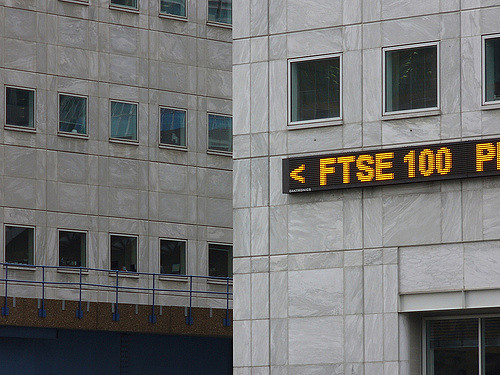Energy stocks drag FTSE 100 lower ahead of U.S. jobs data
London's mid-cap FTSE 250 dipped 0.3% by 0942 GMT. Bucking the sombre mood, shares of AJ Bell jumped 11.9% to top the index after Jefferies raised its rating for the investment platform to "buy" from "hold".

- Country:
- United Kingdom
London's FTSE 100 slipped on Friday ahead of key U.S. jobs data, while investment platform AJ Bell helped limit losses in the mid-cap index after its upbeat annual earnings prompted an analyst upgrade.
Energy stocks led losses in the blue-chip FTSE 100 index after shedding 0.3%. Still, the benchmark index was set for a third straight weekly gain. Investor focus has turned to the U.S. employment data, due later in the day, as it is likely to show job growth in November at its smallest in nearly two years after mounting worries of a recession cooled demand for labour.
"Things could start tumbling down if we do see a strong (U.S.) jobs report today," said Craig Erlam, senior market analyst, Oanda. "If we see really strong jobs and wage growth, then that will cast significant doubt over whether we should be so heavily pricing in 50 basis points (hike), regardless of what (Fed Chair) Jerome Powell said a few days ago."
The FTSE 100 has gained nearly 12% since its October lows as new leadership tries to restore confidence in the British economy after a scuffed mini budget had frazzled markets. London's mid-cap FTSE 250 dipped 0.3% by 0942 GMT.
Bucking the sombre mood, shares of AJ Bell jumped 11.9% to top the index after Jefferies raised its rating for the investment platform to "buy" from "hold". Heavyweight energy stocks lost 1.7%, with oil majors Shell and BP falling 1.3% and 2.3%, respectively, as crude prices dipped.
Rio Tinto slipped 1.5% after Citigroup cut the global miner's rating to "neutral" from "buy". Earlier this week, Rio had said it expects iron ore shipments in 2023 to be in the same range as this year's forecast, and warned costs would be higher. The broader industrial mining index fell 1.1%.
(This story has not been edited by Devdiscourse staff and is auto-generated from a syndicated feed.)
ALSO READ
British equities open higher with US inflation data in focus
British equities move higher; US inflation in focus
Basketball-London Lions win EuroCup thriller to make British history
Indian mission in London celebrates Baisakhi with poetic reflections, bhangra
New exhibition explores life, legacy of Maharaja Ranjit Singh in London










